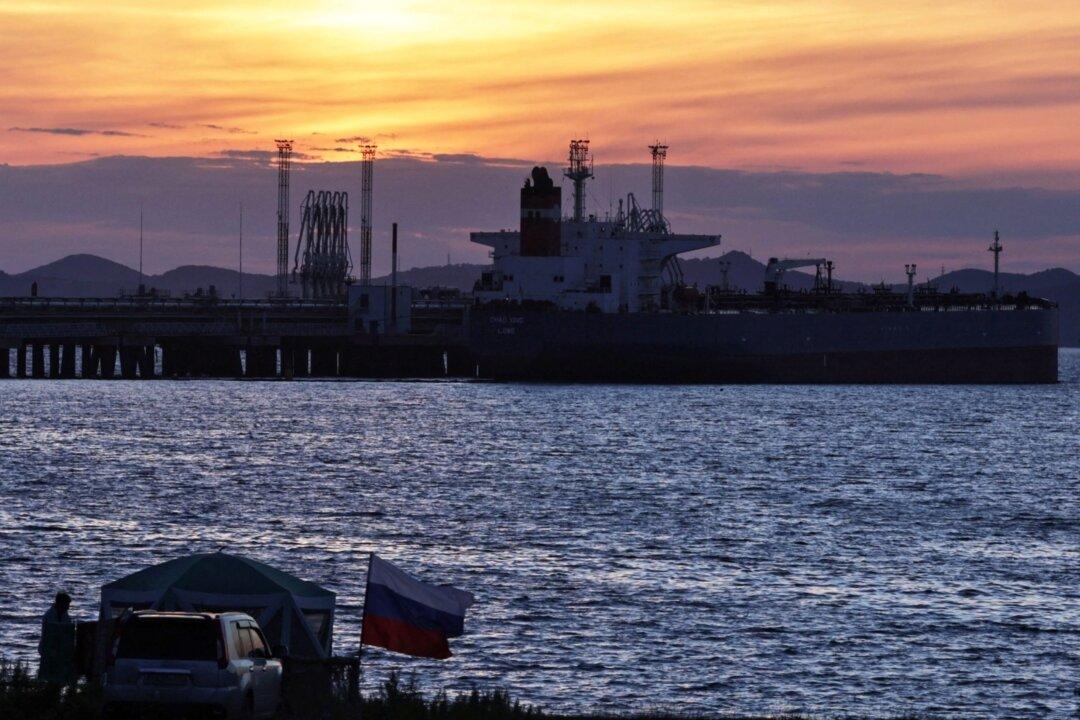LONDON—Oil prices edged up in volatile trade on Monday, as Russia halted exports to Poland via a key pipeline ahead of a hefty supply cut announced for March, but a stronger dollar and fears of recession capped gains.
West Texas Intermediate U.S. crude futures (WTI) traded at $76.68 a barrel, 36 cents, or 0.5 percent higher, while Brent crude futures were up 34 cents, or 0.4 percent, at $83.50 a barrel at 0950 GMT.





